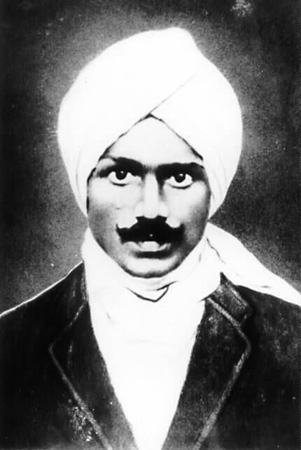The last change in India’s
education policy brought about 34-years ago by late Rajiv Gandhi is now history.
The Cabinet Committee of Central government has
approved the New National Education Policy 2020 (NEP
2020), which replaces the thirty-four year old National Policy on Education
(NPE), 1986. This new policy will pave the way for transformational reforms in
school and higher education in the country.
Jump to topics
Ensuring Universal Access at all levels of school education
Language as medium of education and choice of language
Robust Teacher Recruitment and Career Path
Standard-setting and Accreditation for School Education
Higher Education Commission of India (HECI)
Motivated, Energized, and Capable Faculty
Financial support for students
Online Education and Digital Education
Download the PDF India’s New Education Policy 2020
HIGHLIGHTS

Click to enlarge

BIG CHANGE
School Education
Ensuring Universal Access at all levels of school education
NEP 2020 emphasizes on ensuring universal access to school education at all levels- preschool to secondary. Infrastructure support, innovative education centres to bring back dropouts into the mainstream, tracking of students and their learning levels, facilitating multiple pathways to learning involving both formal and non-formal education modes, association of counselors or well-trained social workers with schools, open learning for classes3,5 and 8 through NIOS and State Open Schools, secondary education programs equivalent to Grades 10 and 12, vocational courses, adult literacy and life-enrichment programs are some of the proposed ways for achieving this. About two crore out of school children will be brought back into mainstream under NEP 2020.
Early Childhood
With emphasis on Early Childhood Care and Education, the 10+2 structure of school curricula is to be replaced by a 5+3+3+4 curricular structure corresponding to ages 3-8, 8-11, 11-14, and 14-18 years respectively. This will bring the hitherto uncovered age group of 3-6 years under school curriculum, which has been recognized globally as the crucial stage for development of mental faculties of a child.
The new system will have 12 years of schooling with 3 years of Anganwadi/ pre schooling.
NCERT will develop a National Curricular and Pedagogical Framework for Early Childhood Care and Education (NCPFECCE) for children up to the age of 8.
The Ministries of HRD, Women and Child Development (WCD), Health and Family Welfare (HFW), and Tribal Affairs will carry out the planning and implementation of Early Childhood Care and Education (ECCE) jointly.
Reforms
Reforms will done by equipping curriculum with the key 21st century skills, reduction in curricular content to enhance essential learning and critical thinking and greater focus on experiential learning.
Ø Students will have increased flexibility and choice of subjects.
Ø There will be no rigid separations between arts and sciences, between curricular and extra-curricular activities, between vocational and academic streams.
Ø Vocational education will start in schools from the 6th grade, and will include internships.
A new and comprehensive National Curricular Framework for School Education (NCFSE) 2020-21, will be developed by the NCERT.
Language as medium of education and choice of language
The policy has emphasized mother tongue/local language/regional language as the medium of instruction at least till Grade 5, but preferably till Grade 8 and beyond.
Ø Sanskrit to be offered at all levels of school and higher education as an option for students, including in the three-language formula.
Ø Other classical languages and literatures of India also to be available as options. No language will be imposed on any student.
Ø Students to participate in a fun project/activity on ‘The Languages of India’, sometime in Grades 6-8.
Ø Several foreign languages will also be offered at the secondary level.
Ø National and State curriculum materials developed, for use by students with hearing impairment.
Assessment
Reforms
All students will take National Assessment Centre, PARAKH (Performance Assessment, Review, and
Analysis of Knowledge for Holistic Development), will be set up as a standard-setting body.
Robust Teacher Recruitment and Career Path
Teachers will be recruited through robust, transparent processes.
Standard-setting and Accreditation for School Education
NEP 2020 envisages clear, separate systems for policymaking, regulation, operations and academic matters.
ü States/UTs will set up independent State School Standards Authority (SSSA). Transparent public self-disclosure of all the basic regulatory information, as laid down by the SSSA, will be used extensively for public oversight and accountability.
ü The SCERT will develop a School Quality Assessment and Accreditation Framework (SQAAF) through consultations with all stakeholders.
Higher Education
Multidisciplinary Education
The policy envisages broad based, multi-disciplinary, holistic Under Graduate education with flexible curricula, creative combinations of subjects,.
UG education can be of 3 or 4 years with multiple exit options and appropriate certification within this period.
Ø Certificate after 1 year,
Ø Advanced Diploma after 2 years,
Ø Bachelor’s Degree after 3 years and
Ø Bachelor’s with Research after 4 years (complete)
An Academic Bank of Credit is to be established for digitally storing academic credits earned from different HEIs so that these can be transferred and counted towards final degree earned.
Multidisciplinary Education and Research Universities (MERUs), at par with IITs, IIMs, to be set up as models of best multidisciplinary education of global standards in the country.
The National Research Foundation will be created as an apex body for fostering a strong research culture and building research capacity across higher education.
Higher Education Commission of India (HECI)
Regulatory System of Higher Education to be distinct for regulation, accreditation, funding and academic standard setting - all under the umbrella of Higher Education Commission of India (HECI.)
Four Verticals of HECI to be National Higher Education Regulatory Council (NHERC), National Accreditation Council (NAC), Higher Education Grants Council (HEGC) and General Education Council (GEC), which would further form a National Higher Education Qualification Framework.
Ø UGC, AICTE will be replaced by a single Higher Education Regulator - HECI.
Affiliation of
colleges is to be phased out in 15 years and a stage-wise mechanism is to be
established for granting graded autonomy to
colleges. Over a period, it is envisaged that every college would develop into
either an Autonomous degree-granting College, or a constituent college of a
university.
Motivated, Energized, and Capable Faculty
NEP makes recommendations for motivating, energizing, and building capacity of faculty thorugh clearly defined, independent, transparent recruitment , freedom to design curricula/pedagogy, incentivising excellence, movement into institutional leadership. Faculty not delivering on basic norms will be held accountable
Teacher Education
The NCTE in consultation with NCERT will formulate a new and comprehensive National Curriculum Framework for Teacher Education, NCFTE 2021. By 2030, the minimum degree qualification for teaching will be a 4-year integrated B.Ed. degree. Stringent action will be taken against substandard stand-alone Teacher Education Institutions (TEIs).
Mentoring Mission
A National Mission for Mentoring will be established, with a large pool of outstanding senior/retired faculty – including those with the ability to teach in Indian languages – who would be willing to provide short and long-term mentoring/professional support to university/college teachers.
Financial support for students
Efforts will be made to incentivize the merit of students belonging to SC, ST, OBC, and other SEDGs. The National Scholarship Portal will be expanded to support, foster, and track the progress of students receiving scholarships. Private HEIs will be encouraged to offer larger numbers of free ships and scholarships to their students.
Open and Distance Learning
This will be expanded to play a significant role in increasing GER. Measures such as online courses and digital repositories, funding for research, improved student services, credit-based recognition of MOOCs, etc., will be taken to ensure it is at par with the highest quality in-class programmes.
Online Education and Digital Education
A comprehensive set of recommendations for promoting online education consequent to the recent rise in epidemics and pandemics in order to ensure preparedness with alternative modes of quality education whenever and wherever traditional and in-person modes of education are not possible, has been covered. A dedicated unit for the purpose of orchestrating the building of digital infrastructure, digital content and capacity building will be created in the MHRD to look after the e-education needs of both school and higher education.
Technology in education
An autonomous body, the National Educational Technology Forum (NETF), will be created to provide a platform for the free exchange of ideas on the use of technology to enhance learning, assessment, planning, administration. Appropriate integration of technology into all levels of education will be done to improve classroom processes, support teacher professional development, enhance educational access for disadvantaged groups and streamline educational planning, administration and management
Promotion of Indian languages
To ensure the preservation, growth, and vibrancy of all Indian languages, NEP recommends setting an Indian Institute of Translation and Interpretation (IITI), National Institute (or Institutes) for Pali, Persian and Prakrit, strengthening of Sanskrit and all language departments in HEIs, and use mother tongue/local language as a medium of instruction in more HEI programmes.
Internationalization of education will be facilitated through both institutional collaborations, and student and faculty mobility and allowing entry of top world ranked Universities to open campuses in our country.
Financing Education
The Centre and the States will work together to increase the public investment in Education sector to reach 6% of GDP at the earliest.











1 Comments
Great work!!
ReplyDeleteSimplified version!!